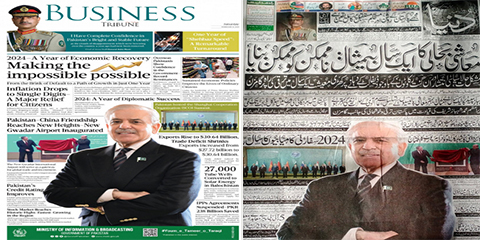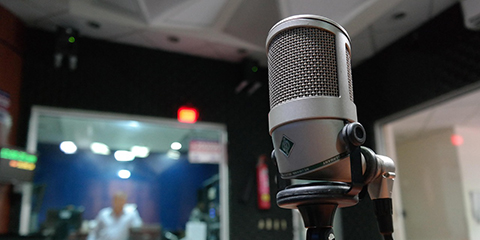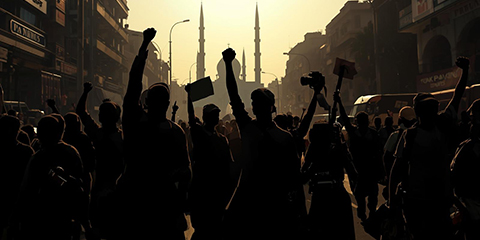Youm-e-Tameer-o-Taraqi or Youm-e-Tabahi? Government spends millions on self-congratulatory ads
JournalismPakistan.com | Published 10 months ago | JP Special Report
Join our WhatsApp channel
ISLAMABAD—As Pakistan Tehreek-e-Insaf (PTI) marked February 8 as a black day to protest what it calls a "stolen mandate" in the 2024 elections, the government responded not with policy reforms or public engagement, but with a lavish display of self-congratulation. Full-page ads in major national dailies, featuring Prime Minister Shehbaz Sharif, screamed headlines like "A year of economic recovery: Making the impossible, possible." But for many Pakistanis, the only thing being made possible is the government’s misuse of public funds.
The Ministry of Information and Broadcasting orchestrated this PR blitz, declaring February 8 as "Youm-e-Tameer-o-Taraqi" (Day of Construction and Development). However, the so-called achievements highlighted in these ads are questionable at best. From economic recovery to infrastructure development, the claims seem disconnected from the ground realities of inflation, unemployment, and widespread public discontent.
What’s even more alarming is the cost of this propaganda. Taxpayers’ money, which could have been used to address pressing issues like healthcare, education, or energy crises, is instead being funneled into glorifying a government that many believe has failed to deliver. The PML-N's history of splurging on self-promotion is well-documented. Ahead of the 2024 polls, the party spent hundreds of millions of rupees on front-page ads proclaiming "Nawaz Sharif The PM." This time, the script is the same, only the protagonist has changed.
Prominent journalists and analysts have not held back in their criticism. Riaz ul Haq tweeted: "Unusual publicity? The government has been in power for 11 months now and has released full-page press releases in newspapers disguised as news. Today, the same will likely be featured all day on TV channels as well.
Journalist Baqir Sajjad said on X that one year on, the people of Pakistan were still awaiting justice for the stolen mandate that crushed their hopes for change. "The country's downward spiral isn't due to its people, but those who silenced their voices to cling to power."
Anchor Kamran Khan, in a scathing 2024 tweet, had called out the PML-N’s election ads that screamed: 'Nawaz Sharif The PM' as "paid ads of deceit, lies, and outright deception." He highlighted how the PTI was systematically denied resources, yet managed to resonate with the public. The government’s reliance on expensive media campaigns, rather than tangible results, speaks volumes about its priorities.
The question is: Who is this latest propaganda for? The average Pakistani, struggling to make ends meet, is unlikely to be swayed by ads and grandiose claims. Instead, these ads serve as a reminder of the disconnect between the ruling elite and the people they are supposed to serve. While the government pats itself on the back, the public is left to bear the brunt of its failures.
In a country where every rupee counts, the decision to spend millions on self-promotion is not just wasteful—it’s insulting. It’s time to hold the government accountable for its misuse of public funds and demand transparency in how taxpayer money is spent. After all, as the saying goes, "Empty vessels make the most noise." And in this case, the noise is being funded by the very people who can least afford it.

























